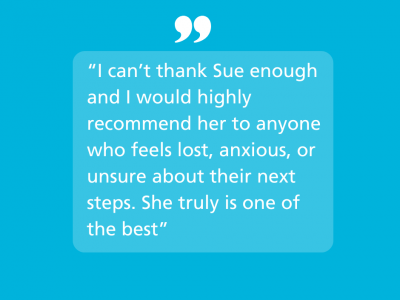- Home
- Anxiety
- Depression
- Emotional Eating
- Living with a long term health condition - Our Talking Health team
- Loneliness
- Menopause
- Mindfulness
- Obsessive compulsive disorder (OCD)
- Panic Attacks
- Phobias
- Pregnancy & Parenthood
- Prolonged Grief (Grieving)
- PTSD
- Sleep Difficulties
- Stress
- Veterans mental health
- Needs We Can and Cannot Meet
- Cognitive Behavioural Therapy (CBT)
- Eye Movement Desensitisation & Reprocessing (EMDR)
- Employment Support
- Counselling for Depression
- Online Self-help
- Mindfulness
- Wellbeing Workshops
- Join the team
- What to expect at your first appointment
- Testimonials
- Talking Health team
- Learn about mental health
- FAQs
- Mental Health Resources
- Blog
- Video Appointments
- Supporting someone through TALKWORKS: A guide for carers and loved ones
- Your feedback
- Making contact if you are deaf
- I need help now
Access support from TALKWORKS
Self-refer to TALKWORKSAccess support from TALKWORKS
Self-refer-
What we can help with
- Anxiety
- Depression
- Emotional Eating
- Living with a long term health condition - Our Talking Health team
- Loneliness
- Menopause
- Mindfulness
- Obsessive compulsive disorder (OCD)
- Panic Attacks
- Phobias
- Pregnancy & Parenthood
- Prolonged Grief (Grieving)
- PTSD
- Sleep Difficulties
- Stress
- Veterans mental health
Access support from TALKWORKS
Self-refer to TALKWORKS - How We Can Help You
- About Us
- Useful Resources
- Get in touch
- Self-refer
An interview with a TALKWORKS High Intensity Therapist
Have you ever wondered what a therapist’s typical day looks like? We sat down with Lloyd, a TALKWORKS High Intensity Therapist and Supervisor, to find out more about his role in the service.
In the conversation below, Lloyd speaks to fellow Clinician Jonathan about what it’s like working for an NHS Talking Therapies service, his role as a High Intensity Therapist and why he decided to work in mental health.
JB: Hi Lloyd, please can you tell me more about your career, leading up to where you are now?
LF: I originally trained as an Art Therapist and worked with patients with severe and enduring mental health issues. This took place in forensic settings in Nottingham and in community mental health settings in London.
I went on to work in Yorkshire in support and project roles, also in this field, before moving eventually to Devon to work in primary care as a mental health support worker embedded in GP Practices. This was in East Devon at first, and was well before NHS Talking Therapies. After a restructure of primary mental health provision, the opportunity came up to apply to work as a High Intensity therapist in the NHS Talking Therapies service.
JB: What 3 qualities would you say are most important in the role of a therapist?
LF: I would say empathy, boundaries and skill.
JB: What does a typical working day look like for you?
LF: My day revolves heavily around working with patients and attending clinical meetings. This can be online, over the phone or face-to-face at my clinic base in Exeter. I also carry out Supervision for other High Intensity Therapists.
JB: What would you say is best about working at TALKWORKS?
LF: There are lots of things I really like about working for TALKWORKS. I’m really proud to work for the NHS and being part of a service able to provide a free-to-access therapy to help adults across Devon who are struggling. One of the most rewarding parts of my role is working directly with patients and seeing the changes that they have made as a result of the work I have done with them.
I also really value my colleagues and the support that I get from both members of my team and my Manager to enable me to carry out the duties of my job.
JB: If you had to give one piece of advice to a trainee Clinician, what would that be?
LF: Look after yourself! You will be keen to get off to a good start and make a good impression, but make sure you have boundaries, get the most out of training and pre-qualification / case load time, make good use of supervision.
JB: How would you explain in simple terms what is offered at STEP 3 by High Intensity Therapists?
LF: We offer evidence based short term psychotherapy. This is usually delivered over 12-16 weeks, depending on the form of therapy. Our treatment options include counselling for depression, EMDR, prolonged grief disorder therapy, various forms of cognitive behavioural therapy and mindfulness based stress reduction therapy.
Commitment, investment and application by the patient in between sessions is key. Change can only occur with the application of techniques and through collaborative work.
If you would like to access support from TALKWORKS, you can self-refer to our service by completing our online self-referral form or by calling 0300 555 3344 (phone lines are open Monday to Friday from 9am – 4:45pm).
Related Posts

Charlie thanks Sue for the employment support she received
Posted by Admin on 1 December, 2025
.png)
Simone shares her story and thanks TALKWORKS
Posted by Admin on 9 December, 2025

